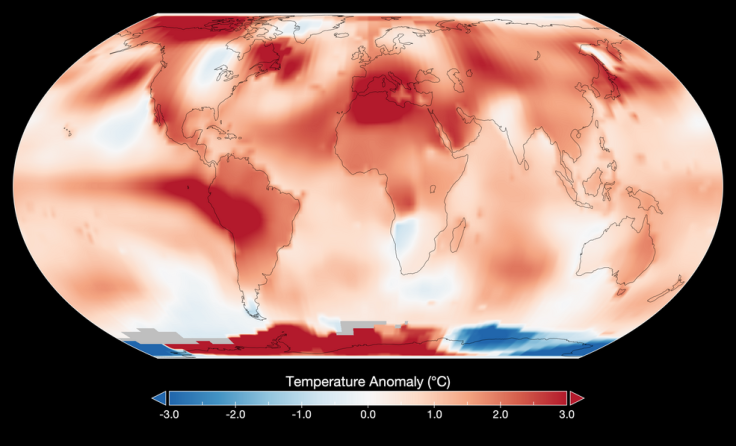NASA's Goddard Institute for Space Studies (GISS) in New York, reported that July 2023 was the hottest month on record ever since 1880.

Earth Keeps Warming Says NASA
NASA's record showed that the global temperature for July 2023 was 0.43 degrees Fahrenheit (F) or 0.24 degrees Celsius (C) warmer than any previous July. Moreover, it was 2.1 F or 1.18 C warmer than the average temperature of July from 1951 to 1980.
"In every corner of the country, Americans are right now experiencing firsthand the effects of the climate crisis, underscoring the urgency of President Biden's historic climate agenda," stated by NASA Administrator Bill Nelson. NASA's data also showed that the five hottest July were recorded in the past five years.
Parts of North and South America, North Africa, and the Antarctic Peninsula logged an above average temperature increase. These regions have been on extreme heat due to the temperature increase of around 7.2 F (4 C). Communities have been suffering heat-related illnesses and deaths due to the continuous warming of the Earth.
NASA Warns on Climate Change Impacts
NASA have been warning every one about the impending effects of global warming. With the planet warming every year, the ecosystem of the Earth will be damaged on unimaginable level. On the other hand, greenhouse gas emissions remain as the top contributor for warming the planet.
"The science is clear. We must act now to protect our communities and planet; it's the only one we have," Nelson emphasized.
With the sea surface temperature increasing due to El Niño, NASA also announced that the biggest impact of it will be largely felt by February until April 2024.
Related Article : NASA's Juno Delivers Sharper Images of Io









